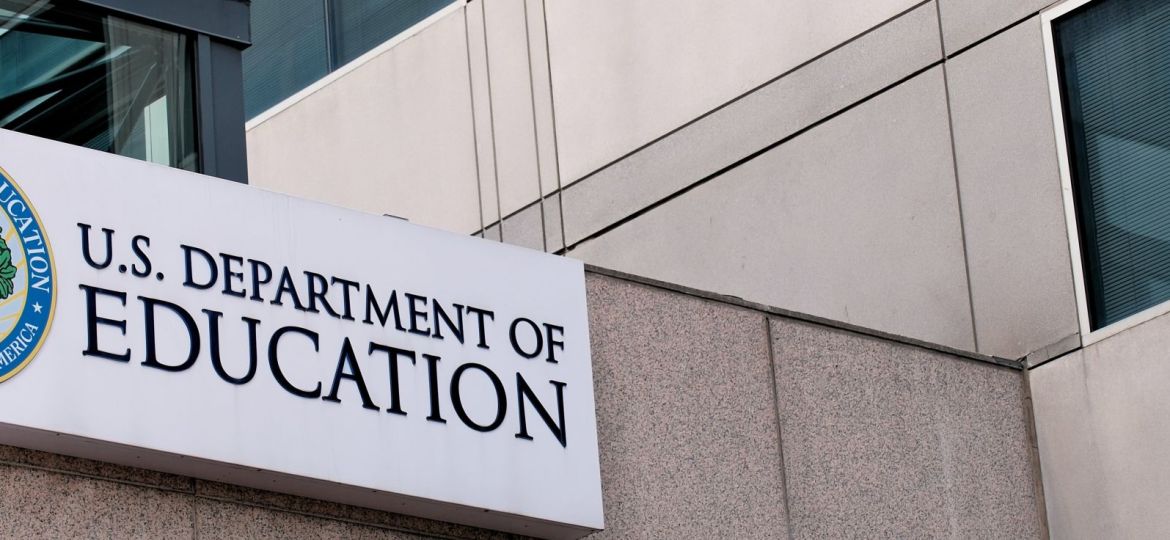
Federal Support for TRIO Continues: Strategies for Grant Success for Colleges and Universities
Federal TRIO programs provide crucial support to low-income, first-generation, and disabled college students to aid their academic success. Despite proposed elimination in the FY26 budget, bipartisan Senate support has maintained funding, highlighting the program’s importance amid a competitive grant environment. Read on for key takeaways about the TRIO competition, as well as tips for staying competitive in today’s funding landscape.
FY26 Budget Proposal and Bipartisan Response for TRIO Programs
TRIO Student Support Services (SSS) is one of eight federal TRIO programs and is designed to provide services for low-income college students, first-generation college students, and college students with disabilities to help them find success at the postsecondary level. SSS grant awards are up to $1.3M over 5 years and these funds provide academic support, advising, financial literacy, tutoring, mentoring, and career guidance to help these students persist to graduation.
The Trump Administration proposed to eliminate TRIO programs in its FY26 budget request to Congress in May, which concerned TRIO grant recipients and TRIO program advocates. On July 31, 2025, the Senate Appropriations Committee passed the Labor, Health and Human Services, and Education Appropriations Bill sustaining TRIO funding at $1.2 billion for FY26. This is a positive indicator of bipartisan support for TRIO programs, though the FY26 appropriations process is not yet complete.
The Council for Opportunity in Education is a significant partner for the TRIO community, providing support and blueprints for the community’s advocacy efforts with members of Congress to garner continued funding for TRIO programs. In the current environment, ED making TRIO SSS awards and TRIO receiving bi-partisan support in the Senate are significant victories for the TRIO community. Though the FY26 appropriations process is ongoing, the community’s efforts have been successful thus far; continued bipartisan support and engagement from the TRIO community offer hope for the program’s future. While ED made hundreds of TRIO SSS awards this summer, some institutions are still awaiting final word on their pending applications. As institutions of higher education begin the fall semester and await guidance on their awards from ED, here are key takeaways from the TRIO SSS competition and tips for staying competitive as the federal funding landscape rapidly evolves.
Key Takeaways from the Recent TRIO SSS Competition
This cycle maintained the program’s usual high level of competitiveness, with hundreds of institutions submitting detailed proposals in pursuit of this vital funding. Among the key developments:
- The Department of Education issued final scores for applicants, with 113 being the highest possible score for a new applicant and 128 for continuing applicants. Institutions that have an active TRIO SSS award are eligible for up to 15 extra points based on performance.
- To be considered within the “funding band”, a technical term that indicates an application met the competitive threshold but has not yet been officially awarded, applications had to score above 112 and below 113.33.
- Institutions in the funding band are still in play; the Department anticipates awarding approximately 150 grants from this group in late August or September.
It’s easy to get caught up in the unknown and uncertainty of the evolving federal landscape. For institutions of higher education, the key is to stay flexible and try to stay ahead.
Staying Competitive in the Funding Landscape
There are several other promising avenues to explore if your institution did not receive an award or if you are looking to augment your student success infrastructure. Programs like the National Science Foundation (NSF) Scholarships in STEM program, Department of Education (ED) Title III & Title V grants and private foundations, all of which can support your institution’s student success and retention efforts. Knowing what is going on in DC is fundamental to staying competitive in the current funding landscape as the timing and priorities for competitions change quickly. Here are four ways to give you a competitive edge:
- Stay Informed: The federal budget process is long and often confusing. Don’t panic when programs are paused or delayed. Stay informed by following updates from trusted sources. Click here to subscribe to our monthly newsletter designed specifically for small and mid-sized college and university leadership to understand what’s happening in Washington, DC and how it impacts your institution.
- Diversify Your Funding Sources: Consider state and local grants, corporate sponsorships, and private foundations. Don’t rely on just one funding stream; casting a wider net increases your chances of success!
- Refine Your Grant Proposals: Tailor each proposal to align with the latest funding priorities. Make sure your proposals clearly show the impact your organization will make and how your project fits within the funder’s priorities.
- Embrace the Shift: The current political climate presents fresh opportunities, with new priorities such as workforce development, expansion of Artificial Intelligence (AI), and economic resilience expected to shape future grant programs. Colleges and universities should proactively plan around these areas to strengthen their competitiveness for upcoming applications.
McAllister & Quinn’s Strategic Intelligence Support
McAllister & Quinn’s Higher Education team monitors the evolving policy landscape in real time and translates it into actionable insights. Our higher education team tracks federal, state, and foundation funding trends in real time, provides strategic intelligence and hands-on support for project management and proposal development, and offers capacity building programs to help client identify, pursue and sustain external funding. We guide you toward opportunities that match your mission, capacity, and goals—maximizing your return on investment.
If you’re wondering what opportunities are available, how to navigate these changes or would like to request a funding consultation, reach out to us at information@jm-aq.com.

Micaela Quinn
Micaela Quinn is a Director of Grants and Federal Affairs within the Higher Education Practice at McAllister & Quinn. As a director, Micaela works closely with small to mid-sized higher education clients to identify and secure federal and foundation grants that are best aligned with each institution’s strategic goals and priorities.











